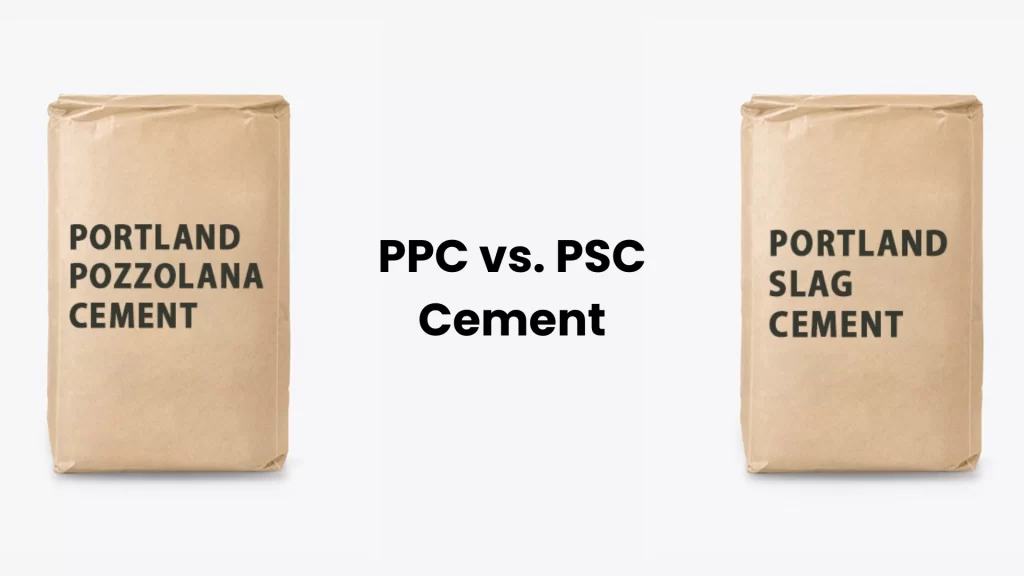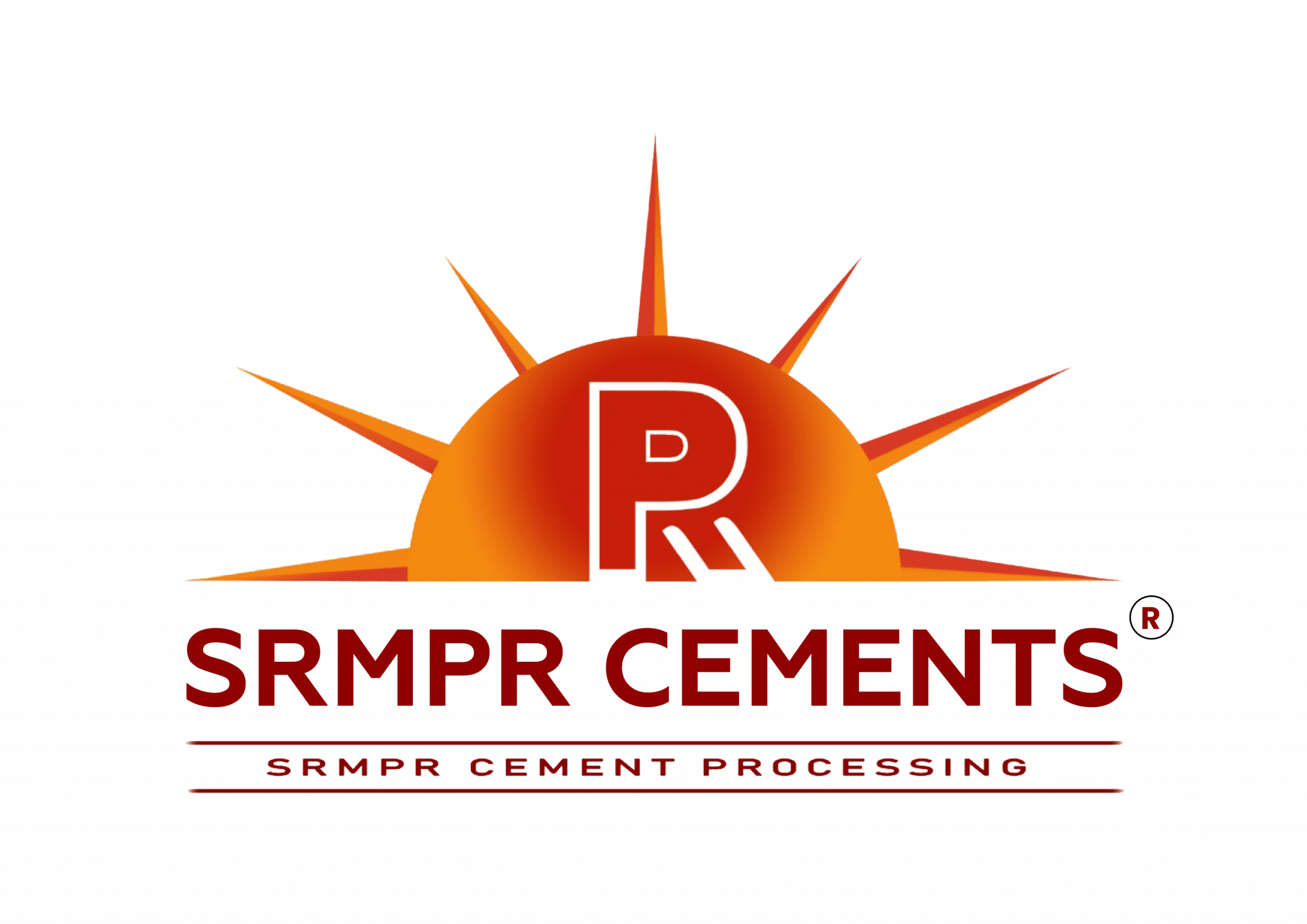Portland cement serves as a cornerstone in construction. Among its variants, Portland Pozzolana Cement (PPC) and Portland Slag Cement (PSC) stand out. These two types possess unique traits and uses, impacting their appropriateness for various building endeavours. Delve deeper to discern the disparities between PPC and PSC, empowering your decision-making process.
Revealing the Benefits of Portland Pozzolana Cement (PPC).
Portland Pozzolana Cement (PPC) is a hydraulic cement that combines Portland clinker and pozzolanic components such as fly ash. PPC generates extra binding molecules when it interacts with calcium hydroxide in the presence of water, increasing its resilience.
Here are some key benefits of PPC:
Augmented Workability: PPC offers heightened workability, streamlining handling and application in construction undertakings.
Diminished Heat of Hydration: This cement variant produces less heat during the hydration process, mitigating the likelihood of thermal fractures and elevating overall structural soundness.
Enhanced Endurance: PPC showcases fortified durability attributes, ensuring prolonged functionality and resilience against environmental influences.
Resilience to Sulphide and Chloride Assaults: PPC displays resistance to sulphide and chloride aggressions, rendering it apt for utilization in demanding surroundings.
Sustainability: Positioned as an eco-friendly choice amidst Portland cement assortments, PPC aids in curbing environmental repercussions while upholding elevated performance benchmarks.
Portland Pozzolana Cement (PPC):
PPC is exceedingly versatile and adaptable to diverse construction applications, establishing it as a favoured option for infrastructure ventures. Here are some prominent utilizations:
Aquatic Constructions: PPC is apt for marine structure development, furnishing endurance and resilience against severe environmental circumstances.
Residential Edifices: PPC is frequently employed in residential building projects, conferring potency and steadiness to edifices.
Rendering: PPC is optimal for rendering tasks, presenting commendable workability and adhesion to surfaces.
Business Developments: PPC is extensively utilized in commercial construction endeavours, encompassing office complexes, shopping centres, and hotels, owing to its exceptional performance and longevity.
Stonework: PPC is the preferred choice for stonework like brickwork and block laying, delivering superb bonding attributes.
Manufacturing of Sewerage Pipes and Barrages: PPC is fitting for producing sewerage pipes and barrages, imparting resistance to sulphur and chloride assaults.
Portland Slag Cement (PSC):
PSC, an alternative hydraulic cement variety, is a fusion of blast furnace slag and Portland clinker. This amalgamation yields a cement with distinctive traits that see broad utilization in construction. Here are some of its applications:
Thoroughfare Fabrication: PSC is commonly integrated into road construction due to its elevated durability and resilience to chemical incursions.
Industrial Flooring: PSC is the preferred choice for industrial flooring applications, offering heightened potency and resistance to abrasions.
Monolithic Edifices: PSC suits mass concrete structures like dams and foundations, enhancing long-term durability.
Railroad Ties: PSC is applied in fabricating railroad ties, furnishing robustness and resistance to cyclic loading.
Prefabricated Concrete Artefacts: PSC is frequently employed in crafting prefabricated concrete goods such as conduits, poles, and blocks, attributable to its exceptional workability and enduring attributes.
Advantages of PSC Cement:
Enhanced resistance to alkali-silica reaction (a slow swelling interaction in concrete between alkali oxides and silica) Reduced vulnerability to cracks.
- Premium quality, offering an improved canvas for painting.
- Harmonious with all types of admixtures
- Immune to chloride and sulphate aggression.
PSC cement is an excellent choice for several applications due to its unique chemical composition, including:
- Building concrete highways and overpasses.
- Maritime structures
- Piling Operations
- Residential, commercial, and industrial constructions.
- Water-retaining structures
Differences Between PPC and PSC in Cement
The main differences between PPC and PSC are as follows.
Structure:
- PPC cement is formulated by integrating a blend of pozzolanic constituents, like fly ash or volcanic ash, with Portland clinker. On the contrary, PSC cement is concocted by amalgamating granulated blast furnace slag with clinker derived from cement kilns.
Strength Progression:
- PPC cement attains its utmost potency at a subsequent phase, rendering it a favoured option for enduring structural undertakings.
Endurance:
- PPC is recognized for its exceptional durability and resilience in hostile settings, making it a prevalent choice for constructions exposed to severe conditions. Conversely, PSC cement boasts remarkable resistance to sulphate and chloride assaults, hence its prevalent use in marine and coastal structures for longevity.
Material Characteristics:
- As per the air permeability technique, PPC necessitates a fineness not below 300 m2/kg. In comparison, the fineness of PSC should not dip below 225 m2/kg. Fineness pertains to the scale of cement particles.
To summarise, the differences between Portland Pozzolana Cement (PPC) and Portland Slag Cement (PSC) are significant, with each offering distinct advantages ideal for a variety of construction needs. PPC, which is endowed with pozzolanic features, excels at improving manoeuvrability, reducing the heat of hydration, and providing increased endurance, making it an excellent choice for marine construction, residential edifices, and rendering operations, among others. PSC, which is derived from blast furnace slag, has great strength, and resistance to chemical attacks, and is suitable for highway construction, industrial flooring, and solid concrete construction.
SRMPR Cements emerges as the preferable choice for a variety of reasons. SRMPR Cements prioritises quality assurance throughout the manufacturing process, from raw material sourcing to final product delivery, demonstrating a commitment to excellence and innovation. Their cutting-edge manufacturing facilities, stringent quality management systems, and adherence to global norms ensure that customers obtain top-tier cement supplies tailored to their specific needs.
Furthermore, SRMPR Cements’ emphasis on sustainability and environmental accountability harmonizes with contemporary construction methodologies, positioning them as a reliable collaborator for eco-conscious initiatives. By opting for SRMPR Cements, construction specialists can repose trust in investing in premium-grade cement underpinned by years of proficiency and a steadfast commitment to client contentment.




I was recommened this blog byy mmy cousin. I’m not sure
whether this poet is wwritten byy him aas nobody else know such
detailed about my trouble. Youu are amazing! Thanks! https://Www.waste-ndc.pro/community/profile/tressa79906983/